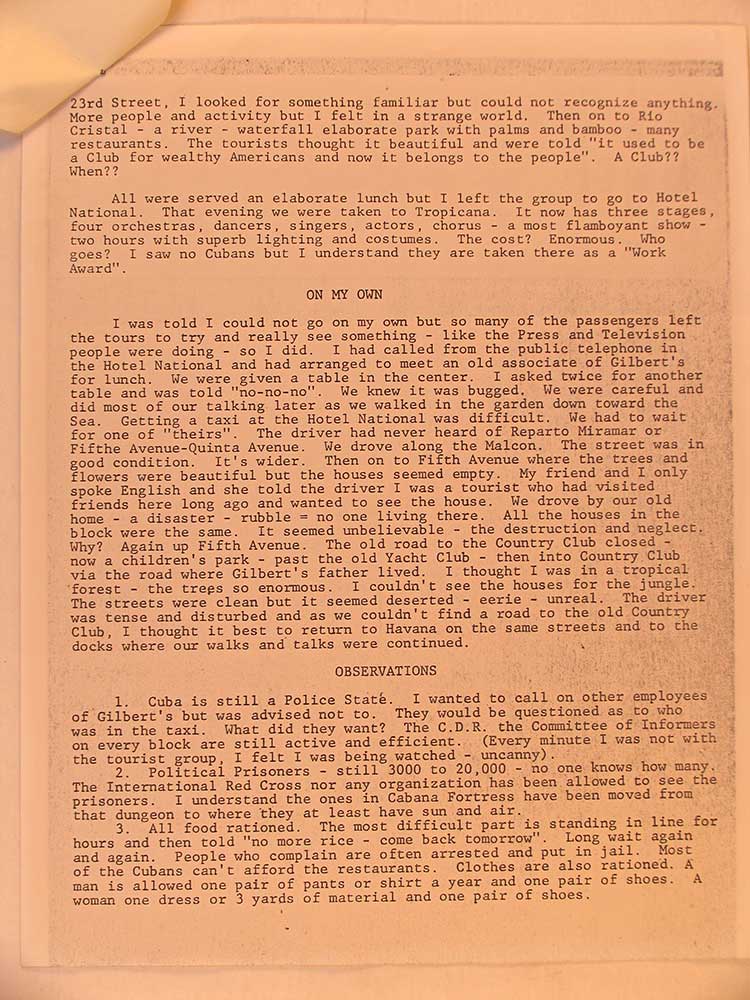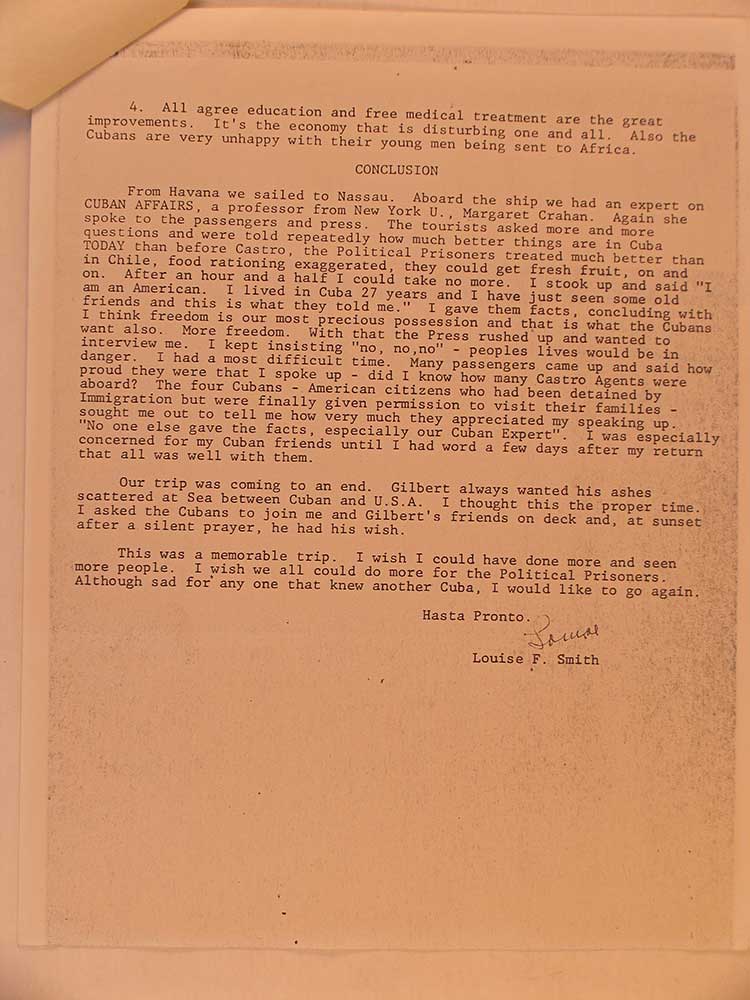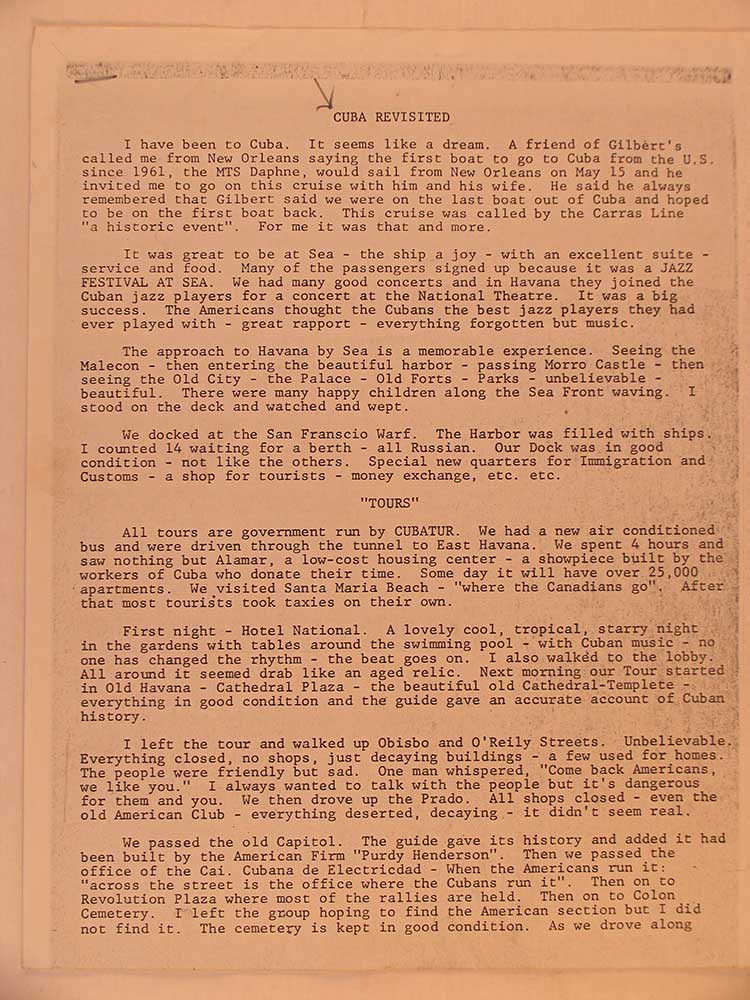Probably written in 1978 when the Carter administration negotiated with the Castro regime to allow visits by Cuban exiles and US citizens for the first time, this fascinating report paints a portrait not unlike that of Cuba today. Its author was Louise F. Smith, a former 27-year resident of the island who sent a copy to executives of the Czarnikow-Rionda Company, owned by the Braga brothers and one of the largest multi-national sugar companies in Cuba. For decades after Fidel Castro suddenly nationalized all private businesses in late 1960 and adopted Communist rule, executives of the company regularly received reports of conditions in Cuba from visitors and former employees still on the island. Along with expressions of shock and nostalgia, Smith wonders why a socialist regime would allow so many once private, now state-owned businesses and other confiscated properties to lie empty and decay: if they belong to the people, why not put them to use for the people? She also reports on the state’s reliance on Cuban jazz music to entertain foreign guests, despite the state’s ban on allowing Cubans themselves to listen or play jazz at the time: the Communist Party claimed it was “ideologically diversionary” and made enjoying jazz a political crime. Braga Brothers Collection, Special and Area Studies Collections, Smathers Library, University of Florida.


